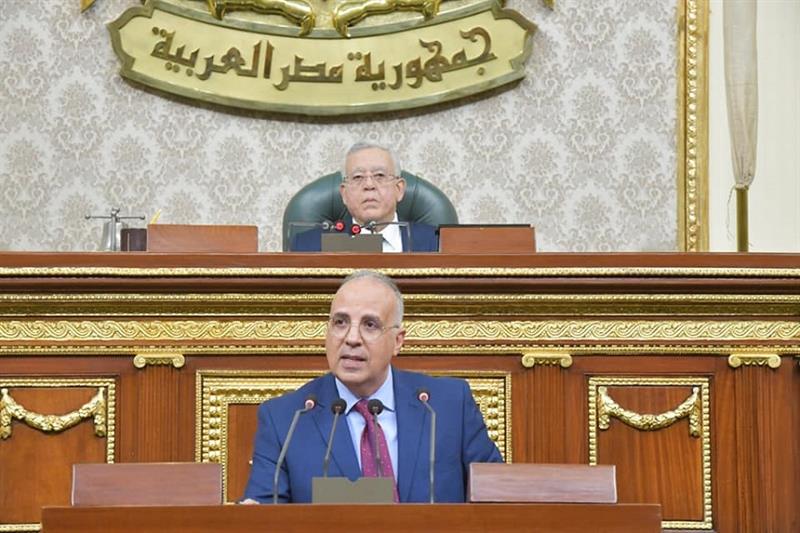
Egyptian Minister of Irrigation and Water Resources Hany Sewilam speaks to members of the Egyptian Representatives of House (Photo courtesy of the Egyptian Ministry of Irrigation and Water Resources)
As it looks forward to planting millions of acres nationwide, the government needs 8 billion cubic metres of water annually, especially in the west of Delta and in Sinai.
The minister's remarks – reported by Ahram Arabic news gate – were made in response to a number of parliamentary motions.
The country is capable of providing that amount by reusing agricultural wastewater and recycling drainage water, Sewilam added.
The water resources of the country include 55.5 billion cubic metres coming from the Nile, 1.3 billion cubic metres from rainfall and 2.4 billion cubic metres from sources underground, the minister added.
Egypt, Sewilam explained, receives a limited amount of rainfall waters that could not be relied on. The government, he said, cannot also rely on underground water as it is unrenewable. Instead, the government is working on resuing agricultural water.
Egypt, which is one of world's most water-scarce countries, needs annually up to 114 billion cubic metres. The amount it receives annually, however, is 60 bcm, on average, coming mostly from the Nile.
As a result, Egypt rejects the unilateral measures undertaken by Addis Ababa with regard to the filling and operation of the Grand Ethiopian Renaissance Dam (GERD). Cairo fears such measures would affect its share.
The country, whose current population is estimated at over 104 million and is expected to increase by 75 million by 2050, overcomes water scarcity by importing 54 percent of its virtual water, which is the embedded water required to produce commodities, and reusing 42 percent of its renewable water as per its National Water Resources Plan 2017-37.
The $50 billion, 20-year scheme aims to optimise water use by recycling agricultural wastewater and groundwater. It seeks to improve water quality and to bring additional water resources. The scheme encompasses wastewater treatment, desalination of seawater, and an overhaul of agricultural irrigation systems.
The scheme also involves opening desalination and water treatment plants such as the Bahr Al-Baqar plant in Port Said, hailed as the world’s largest project of its kind, as well as rehabilitating irrigation canals, improving water management and distribution, and reducing wastage.
Short link: